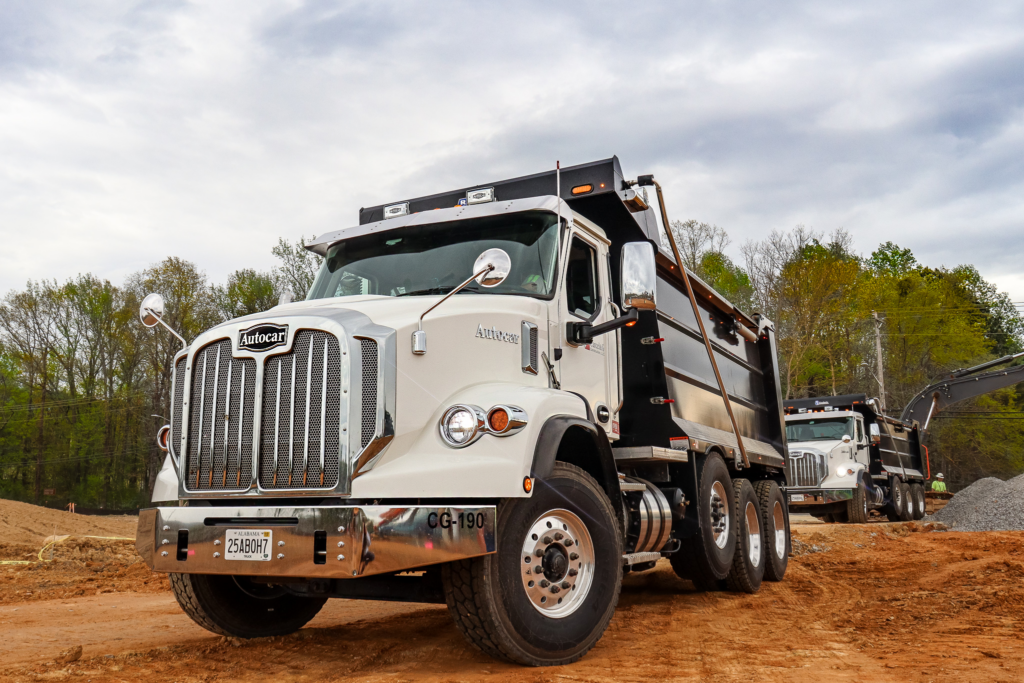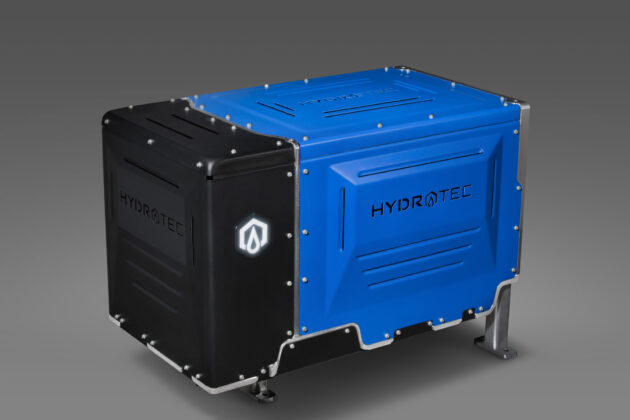GM to supply Autocar with fuel cells for terminal tractors, vocational trucks
General Motors (GM) has announced a deal with Autocar to provide Hydrotec hydrogen fuel cell power cubes for its electric terminal tractors and vocational trucks.
It marks GM’s first foray into supplying hydrogen fuel cells for vocational truck applications. Fuel cells combine hydrogen and oxygen to generate electricity through an electrochemical reaction. The fuel cell enables the conversion of energy stored in hydrogen into electricity to power a vehicle.

“EV propulsion systems like GM’s Ultium platform are great solutions for electrifying passenger vehicles, but larger vehicles like Autocar’s Class 8 trucks, refuse trucks and terminal tractors require robust solutions that enable significant energy carrying capacity and fast refueling times,” said Charlie Freese, GM executive director, Global Hydrotec. “We want to enable zero tailpipe emissions solutions for the largest, highest energy-consuming vehicles, and fuel cells are ideal for the most energy intensive applications.”
GM says its Hydrotec power cubes can electrify vehicles in a range of applications beyond passenger vehicles, including heavy trucks for freight haulage and even locomotives. The first of the commercial vehicle applications it will supply will be Autocar’s cement mixers, roll-off and dump trucks, followed by refuse trucks and terminal tractors, with production to begin in 2026.
“Autocar provides customized vocational trucking solutions, and as regulations change, we see Hydrotec fuel cells as an additional avenue for our customers to meet their EPA requirements with zero tailpipe emissions vehicles,” Eric Schwartz, president, Autocar, said in a press release. “GM’s scale, reliability and the capability of their Hydrotec fuel cell technology will enhance Autocar’s existing platforms.”
Each power cube contains more than 300 hydrogen fuel cells, along with thermal and power management systems. The cube provides 77 kilowatts of power with little noise. Those cubes can be stacked to match the vehicle’s power and range needs.
Triz Engineering will provide integration support for power distribution between the fuel cell and the batteries.
“We have carefully studied existing severe-duty vocational trucks to understand their specific demands and requirements,” said Johann Vorster, president of Triz Engineering. “With GM and Autocar, we have built a fuel cell application that is unique within vocational vehicles — giving severe-duty trucking more options to be truly rugged and capable of achieving zero tailpipe emissions.”
On a call with journalists, Freese said, “We view fuel cells as an ideal solution for electrifying larger vehicles.”
He mentioned trucks with heavy payloads and towing requirements, and those traveling distances of more than 500 miles (800 km) as ideal for hydrogen fuel cells. Fueling is faster and range and payload are greater than in battery-electric vehicles.
Asked why GM would consider terminal tractors and vocational trucks – which in most cases return regularly to, or never leave the terminal – Freese said in many applications fuel cells will still make more sense than battery-electric. Particularly since they can be fueled much quicker than taking on a charge.
“When you want them running constantly 24 hours a day, it doesn’t lend itself well to extended charging periods,” Freese said. “In order to keep the wheels turning and keep those vehicles earning money, that’s the perfect application we look at for hydrogen fuel cells because we can very rapidly refuel the vehicle and get it back into service where it’s earning money for its owner, and do that without any extended down period.”
Asked if the fuel cells will withstand the rugged severe-duty applications they’ll be put into with Autocar, Freese added: “The system we are going into production with has been tested in military applications.”
This included subjecting the hydrogen tanks to small arms fire and even rocket propelled grenade blasts. Within tracked military vehicles, the fuel cells have undergone extensive durability testing including traversing vertical steps and other obstacles, and being dropped off small cliffs. They’ve also withstood extreme hot and cold temperatures, Freese said. Additional testing has shown the fuel cells can withstand exposure to road spray and other contaminants.
“What we’ve done is put the hydrogen onboard in very solid, well constructed carbon fiber Type 4 tanks,” he added.
As for the cost, while there is not yet parity with diesel, Freese said “the technology is evolving very fast and the costs are coming down as a result of that.”
Scale will be required to bring costs down closer to parity with diesel, and working with Autocar to get hydrogen-fuel-cell-electric terminal tractors and vocational trucks into the market will help bring that needed scale, Freese said.
Have your say
This is a moderated forum. Comments will no longer be published unless they are accompanied by a first and last name and a verifiable email address. (Today's Trucking will not publish or share the email address.) Profane language and content deemed to be libelous, racist, or threatening in nature will not be published under any circumstances.

good news for Autocar